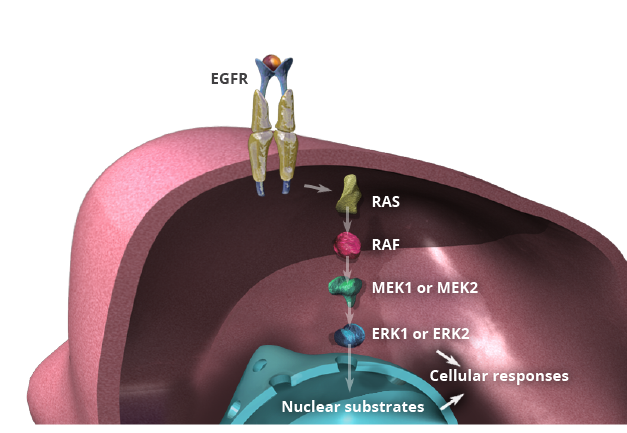
Gene mutations that activate the MAPK pathway are observed in a number of cancers. These mutations promote tumor cell migration, proliferation, and survival. The protein kinase BRAF is a member of the RAF family of kinases that includes BRAF and CRAF. These kinases are normally activated by RAS family members such as KRAS and NRAS in response to signals from tyrosine kinase cell surface receptors. BRAFV600 mutations lead to continuous, RAS-independent activation of BRAF activity, and MAPK pathway activation through the downstream activation of MEK (MEK1 and MEK2) and ERK (ERK1 and ERK2).
Oncogenic BRAF V600E mutations are present in up to 10% of colorectal cancers. Patients with these mutations have a poor prognosis and a nearly 2-fold increase in mortality relative to patients with mCRC and wild-type BRAF. For this reason, patients with these mutations are often treated with more aggressive chemotherapy regimens. BRAF V600E mutations in CRC are associated with tumors that occur in the ascending colon, advanced age, female gender, high tumor grade, and precursor sessile serrated adenomas.
BRAF inhibitors alone, inhibit mutated BRAF kinase and show activity in the treatment of BRAF mutant metastatic melanoma. However, BRAF inhibition alone does not show the same level of activity in the treatment of BRAF mutant mCRC.
